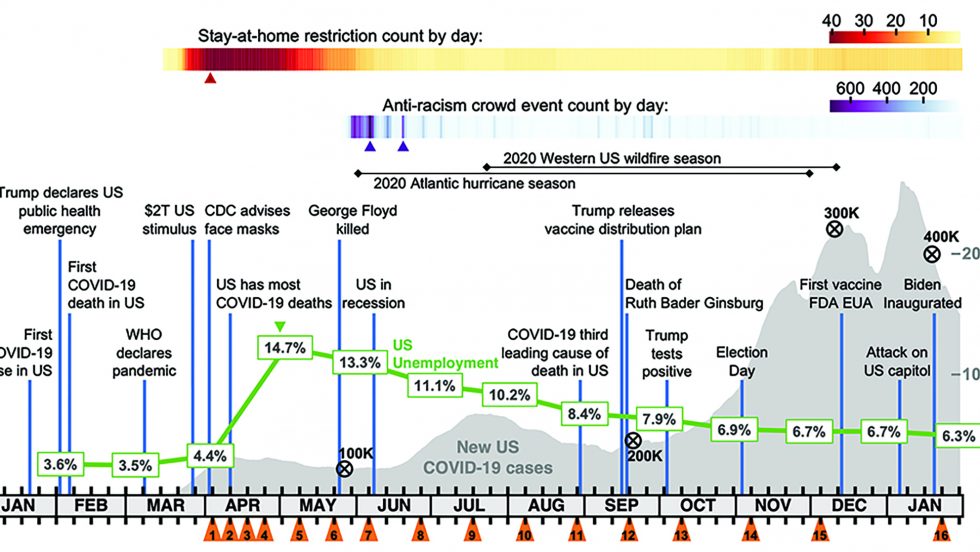
Damian Stanley, PhD, assistant professor of psychology at Adelphi, believes his large-scale, longitudinal study of the COVID-19 pandemic’s unseen psychological effects can help us learn to mitigate its psychological impact, on both an individual and societal level.
When the coronavirus emerged at the end of 2019, the ensuing lockdown that began in March 2020 confined millions of people in the United States to their homes. For Damian Stanley, PhD, assistant professor of psychology, and his colleagues, the pandemic presented an unprecedented opportunity for action: investigating how large-scale collective trauma would impact our psychological well-being, our socio-emotional attitudes and our behaviors.

Damian Stanley, PhD
To obtain the requisite data, Dr. Stanley knew he had to move fast. In early March 2020, he worked with collaborators Ralph Adolphs, PhD, Bren Professor of Psychology, Neuroscience and Biology at the California Institute of Technology, and Uri Maoz, PhD, assistant professor of computational neuroscience at Chapman University, to launch a vast project: the COVID-Dynamic Longitudinal Study (coviddynamic.caltech.edu).
“From the very beginning, we thought this was going to be a critical moment in human history. We wanted to be able to characterize that moment psychologically,” Dr. Stanley said. He and his colleagues had three primary goals: to capture a detailed psychological portrait of our society’s journey through the pandemic, to probe implicit and explicit attitudes and emotions, and to do so with scientific rigor.
The investigators agreed that a longitudinal study would be ideal. Unlike cross-sectional studies, which provide only a snapshot of a population at one particular moment in time, a longitudinal study tracks the evolution of thoughts and attitudes in the same population over a given period. To make sure their findings were robust, they used the large-scale data collection platform Prolific to recruit a population that was diverse across numerous variables: race, geography, age, class and gender.
They also took care to design a survey that would be similarly diverse in its areas of study. “Because we assumed a lot would be changing during the pandemic,” Dr. Stanley said, “we thought this was a good time to study a wide range of psychological variables.” These included changes in racial attitude; basic psychological constructs such as fear and depression; substance use and abuse; changes in memory and how they correlate with trauma; the evolution of humanitarian and prosocial attitudes; and what personality traits correlate with mask wearing and other forms of compliance with public health directives.
But people are not always honest or aware of their own views, particularly around sensitive issues such as race. To reduce response bias, the team paired an investigation of people’s explicit attitudes, which can be determined through questionnaires, with an examination of implicit attitudes through the performance of discrete tasks. “We measure implicit attitudes with the implicit association test,” Dr. Stanley explained. “In the test, a participant sorts faces from different ethnic backgrounds alongside positive and negative words. Implicit attitudes can then be determined by how variations in people’s error rates and reaction times correlate with the ethnicity of the faces.”
When the COVID-Dynamic Longitudinal Study was first launched, the group of roughly 1,500 participants took the test once a week; after a few months, the research team reduced the test frequency to every few weeks. By the end of January 2021, the group had amassed an enormous trove of data. The group plans to submit an article describing the data for publication, followed by more articles based on analysis of the data. More than a dozen research projects are currently underway, as are follow-up studies with the participants.
Wherever the results land, Dr. Stanley believes the COVID-Dynamic project can help us learn to mitigate the psychological effects of a large-scale disaster. Understanding the psychological impact of COVID-19—on both an individual and societal level—is critical to developing strategies that will help people prepare for and adapt to the next crisis that comes our way.